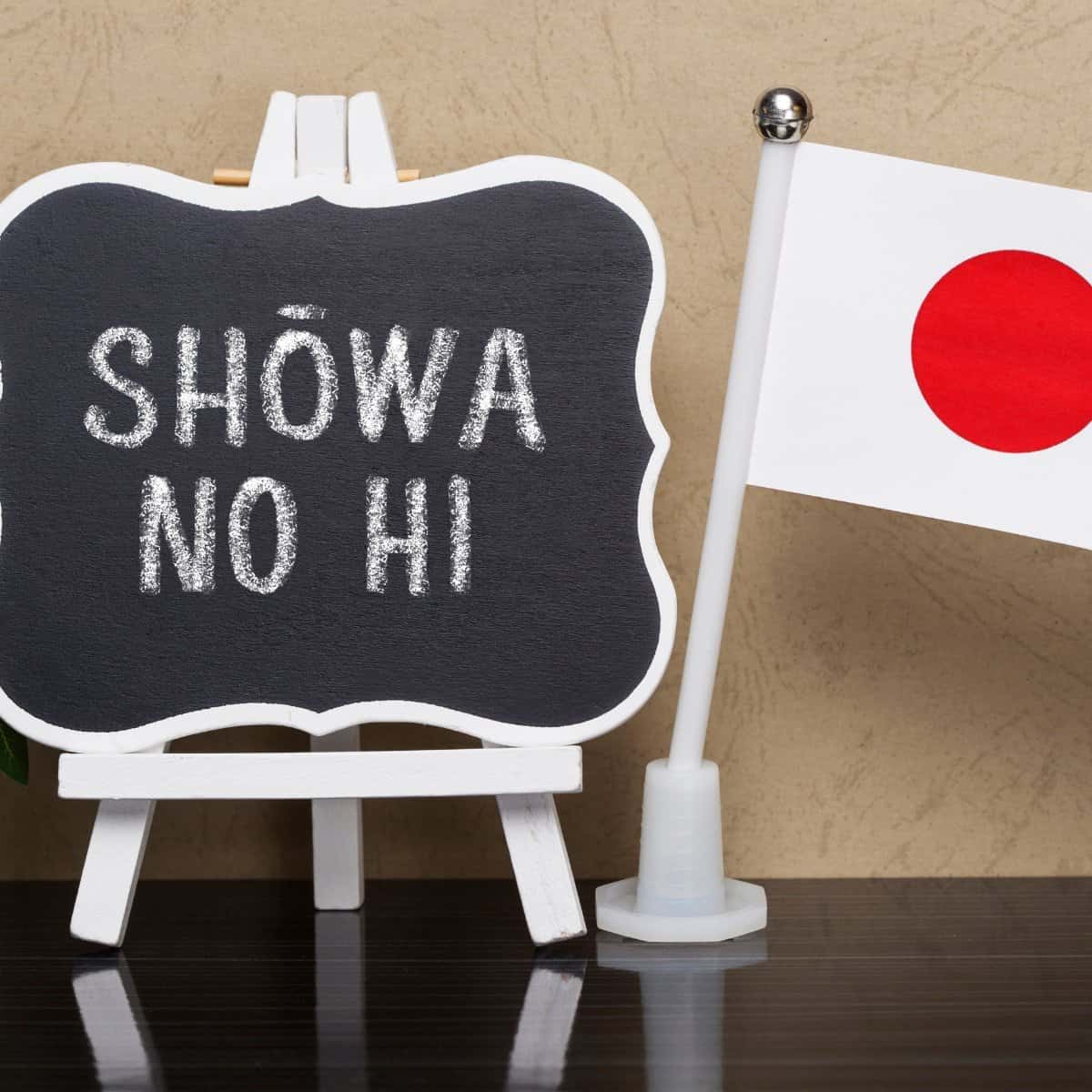Showa Period: A Comprehensive Guide to Japan’s Golden Age
The Showa period was a time of great change in Japan. It lasted from 1926 to 1989 and was the longest period of rule by a single emperor in Japanese history.
The Showa period is also known as the Shōwa period, named after Emperor Hirohito, who ruled during this time. It was a time of great growth for Japan as it became a major world power. The Showa period was marked by a desire to maintain control of the state government and military, working to curb the power of small groups.
Let’s look at the history and legacy of this period in Japanese history.


Check out our new cookbook
Bitemybun's family recipes with complete meal planner and recipe guide.
Try it out for free with Kindle Unlimited:
Read for freeIn this post we'll cover:
Discovering the Showa Period: A Journey Through Japan’s Second Great Era
The Showa period, also known as the Shōwa era, was a time in Japanese history that lasted from 1926 to 1989. It was the longest reign of any emperor in Japan’s history, with Emperor Hirohito at the helm for the entire period. The era marked a significant shift in Japan’s presence on the world stage, as the country went from a small power to a major player in international affairs. The Showa period was marked by a desire to maintain proper control over the state, with the government and army working together to curb the power of small groups and maintain a distinctly Japanese identity.
The Showa Era and World War II
The Showa period started in 1926, just a few years before the world would be plunged into another global conflict. Japan’s heavy involvement in World War II marked a significant turning point in the era, with the country experiencing both great victories and crushing defeats. The naval power of Japan was marked by the ratio of its ships to that of the United States, and the government’s desire to maintain control over Manchuria and Kwantung led to an opening of hostilities with the international community. The war ended in 1945 with Japan’s defeat and subsequent occupation by the Allied powers.
The Showa Era and the Post-War Period
The end of World War II brought about significant changes to Japan and the Showa era. The country was forced to adopt a democratic government and underwent significant economic and social changes. The Tokyo War Crimes Tribunal preceded the death of Emperor Hirohito in 1989, marking the end of the Showa period. The era was marked by a desire to maintain a distinctly Japanese identity and culture, with traditional art and languages being given a proper level of respect and importance.
The Legacy of the Showa Era
The Showa period marked a crucial time in Japan’s history, with the country experiencing significant changes and growth. The era was marked by a desire to maintain control and a distinctly Japanese identity, which has had a lasting impact on the country’s culture and society. The heavy involvement in World War II and subsequent defeat brought about significant changes, but the overall legacy of the Showa period is one of growth and progress.
Delicious Dishes: Foods that originated in the Showa Period
The Showa period, which lasted from 1926 to 1989, was a time of great change in Japanese culture and lifestyle. This era saw the development of modern Japan, with new trends and products emerging in all areas of life, including food. The Showa period was a time of great creativity in the kitchen, with chefs and home cooks alike experimenting with new ingredients and techniques to create delicious and innovative dishes.
Traditional Meat Dishes
One of the most popular foods that originated in the Showa period is sukiyaki, a dish made with thinly sliced beef that is cooked with vegetables and tofu in a sweet and savory sauce. Another traditional meat dish that became popular during this time is tonkatsu, a breaded and deep-fried pork cutlet that is often served with a tangy sauce. These dishes are still enjoyed today and can be found in many Japanese restaurants around the world.
Convenience Foods
The Showa period also saw the rise of convenience foods, as people began to lead busier lives and had less time for cooking. One example of a popular convenience food that originated in this era is instant ramen noodles, which were first created in 1958 by Momofuku Ando. These noodles were a game-changer, allowing people to enjoy a hot and satisfying meal in just a few minutes.
Vegetable Dishes
While meat dishes were popular during the Showa period, there was also a trend towards eating more vegetables. This was partly due to the fact that meat was expensive and not always available, but it was also influenced by the growing interest in health and wellness. One vegetable dish that became popular during this time is nabe, a hot pot dish that is made with a variety of vegetables and protein, such as tofu, seafood, or meat.
Modern Japanese Cuisine
The Showa period was a time of great development and innovation in Japanese cuisine, and many of the dishes that were created during this time are still enjoyed today. However, the era also saw the introduction of new ingredients and cooking techniques from overseas, which helped to create a more diverse and global cuisine. Today, Japanese cuisine is known around the world for its fresh ingredients, delicate flavors, and beautiful presentation.
Discover the Best Spots to Learn About the Showa Period in Japan
The Showa period, which started in 1926 and ended in 1989, was a crucial time in Japanese history. It marked a seismic shift in the country’s political and social landscape, having experienced World War II and the country’s rise to economic power. Despite the seismic changes, the Showa period maintained a distinctly traditional Japanese feel, with a focus on maintaining proper control and presence. If you’re interested in learning more about this fascinating era, there are plenty of places to visit in Japan that will allow you to do just that.
The Showa Memorial Museum
The Showa Memorial Museum is the main museum dedicated to the Showa period. It’s located in Tokyo and features a number of exhibits focused on the era’s art, culture, and history. The museum is a great place to start if you’re looking to learn more about the Showa period and its significance in Japanese history.
The Showa Retro Streets
If you’re looking for a more hands-on way to experience the Showa period, head to the Showa Retro Streets in Kawasaki. This area is famous for its vintage shops and restaurants, which serve up traditional Japanese dishes that originated during the Showa period. The streets are lined with shops selling everything from traditional Japanese clothing to vintage toys, making it a great place to do some shopping while you learn about the era.
The Showa Kinen Park
The Showa Kinen Park is a large park located in Tokyo that features a number of attractions related to the Showa period. The park is home to a number of traditional Japanese gardens, as well as a large market that sells traditional Japanese goods. There are also a number of restaurants in the park that serve up traditional Japanese dishes, making it a great place to grab a bite to eat while you learn about the era.
The Showa Era Village
The Showa Era Village is a small village located in Nagano that’s dedicated to preserving the traditional Japanese way of life during the Showa period. The village is home to a number of traditional Japanese houses and shops, and visitors can take part in traditional Japanese activities like tea ceremonies and calligraphy lessons. It’s a great place to get a feel for what life was like during the Showa period.
Conclusion
The Showa period was a time of great change in Japanese culture and society, lasting from 1926 to 1989. It was the longest reign of an emperor in Japanese history, and marked a shift in the country’s presence on the world stage as a major power.
It was a time of great creativity in the kitchen, with delicious new dishes being invented, and it was the beginning of the convenience food era with instant ramen.
If you’re interested in learning more about the Showa period, I’d recommend checking out this guide for a closer look at the history and culture of this era.
Check out our new cookbook
Bitemybun's family recipes with complete meal planner and recipe guide.
Try it out for free with Kindle Unlimited:
Read for freeJoost Nusselder, the founder of Bite My Bun is a content marketer, dad and loves trying out new food with Japanese food at the heart of his passion, and together with his team he's been creating in-depth blog articles since 2016 to help loyal readers with recipes and cooking tips.
